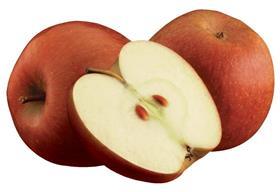
Exports of New Zealand Braeburn apples are expected to be down this year by almost a third on last year’s export figures.
Pipfruit New Zealand recently estimated exports of the variety would not top 3m cases (54,000 tonnes) this year. Last year the country exported more than 4m cases.
“This low crop is a combination of a cooler summer producing smaller fruit, but also growers reacting to the high New Zealand dollar by sending their crop to process, thereby reducing the risk,” said Pipfruit New Zealand chief executive Alan Pollard.
Exports of the variety have been dwindling in recent years and for several seasons now growers have been receiving prices below the cost of production.
“We have gone from a high of over 8m cases exported in 2005 to this year’s crop of less than 3m,” said Pollard. “This represents a significant change over a short time for a tree crop.”
A number of factors have been blamed for poor sales including a down turn in the variety’s main market, Europe where sales have been slow and consumers are looking for low prices.
Southern Hemisphere suppliers have already responded to Europe's gloomy market conditions and exports of Royal Gala to the region this season are down by nearly 40 per cent on previous years.
There is hope, however, the lower crop volume will translate into better prices for growers and exporters in New Zealand.
“Braeburn is an iconic New Zealand apple and there is good consumer demand for it in Europe,” said Pollard. “The fruit this year is highly coloured and has excellent texture and eating quality. I am confident that this year’s smaller than predicted crop will be sold at sustainable prices and that the variety will remain a key part of our international supply.”
The Braeburn sales window is starting in Europe with the first fruit entering wholesale markets there. Supermarket programmes are likely to begin in mid June.



